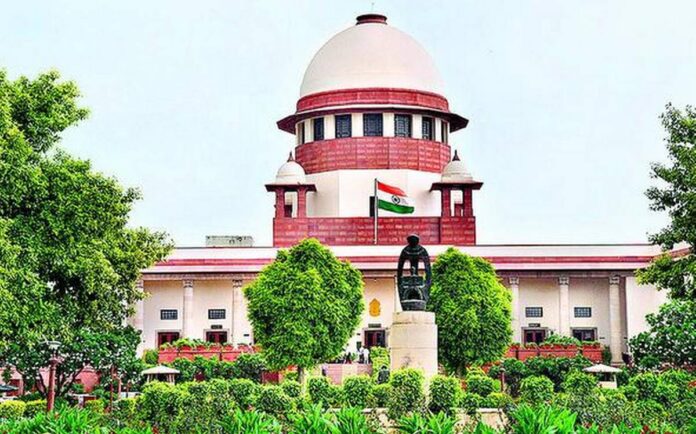The Supreme Court has called on the Union government to formulate a policy aimed at preventing foreign nationals accused of crimes in India from fleeing the country after securing bail. The directive came while hearing a case involving a Nigerian national who absconded after being granted bail in a high-profile case by the Jharkhand High Court in May 2022.
The matter returned to the apex court after it had, in December last year, set aside the bail order and directed authorities to ensure that the accused was brought back to India to face trial. However, despite the order, the individual managed to return to Nigeria, exposing the challenges of enforcing bail conditions on foreign nationals.
A Bench of Justices Dipankar Datta and Augustine George Masih, during the latest proceedings, expressed concern that such instances could recur unless systematic measures were adopted. “Something more has to be done as these cases keep coming up. Therefore, a proper set of guidelines has to be framed and distributed to all the courts concerned so that such incidents do not happen in future,” the court had earlier observed.
The Bench was informed by Additional Solicitor General Raj Kumar Bhaskar Thakre that extradition of the accused was unlikely due to the absence of a bilateral extradition treaty between India and Nigeria. An email from the Ministry of External Affairs to the Solicitor General confirmed this position, stating that without a treaty, Nigerian authorities were unlikely to extradite their own citizen.
Given these limitations, the court concluded that continuing to pursue extradition efforts would serve no useful purpose. It disposed of a Special Leave Petition filed by the Jharkhand government, while confirming the order that had cancelled the accused’s bail. At the same time, it left the matter open for the central government to devise an appropriate framework to prevent similar occurrences.
The ruling underscores a longstanding gap in India’s legal architecture when it comes to handling foreign accused. Without enforceable mechanisms to ensure compliance with bail conditions or bilateral treaties to facilitate extradition, Indian authorities face significant obstacles when such individuals abscond. The court’s call for a policy is intended to provide consistency and clarity across judicial and enforcement bodies, ensuring that accused persons cannot easily evade trial by leaving the country.
Legal experts point out that the issue is not limited to Nigeria but extends to nationals of any country with which India lacks an extradition treaty. As of now, India has signed extradition treaties with 47 countries and extradition arrangements with 12 others, leaving large parts of the world outside its legal reach. This creates vulnerabilities in cases involving cross-border crime, narcotics, fraud, or human trafficking.
The apex court’s intervention comes at a time when international mobility and organised crime have made such cases increasingly common. Instances of foreign nationals being arrested in drug trafficking cases, cybercrime, or financial fraud have frequently made headlines. Yet, securing their presence for trial becomes difficult if they manage to exit India while on bail.
By urging the Centre to take action, the court has shifted the focus from case-by-case management to a broader structural response. Possible measures could include stricter bail conditions for foreign nationals, the mandatory surrender of passports, electronic monitoring, or coordination with immigration authorities to prevent travel once bail is granted. Such provisions would reduce the likelihood of absconding, even in the absence of extradition treaties.
For the Jharkhand case at the centre of the ruling, the absconding of the accused has left trial proceedings in limbo. While the cancellation of bail stands confirmed, enforcement agencies are now unable to secure the presence of the accused in court. The Supreme Court’s insistence on a preventive policy is therefore not only a lesson drawn from this case but also a broader safeguard for the future.
The directive now puts the onus on the Union government to frame a strategy that can balance the rights of the accused with the imperative of ensuring justice. If adopted, such a policy could set a precedent for handling foreign nationals accused of crimes across India, addressing a lacuna that has long hampered enforcement.





